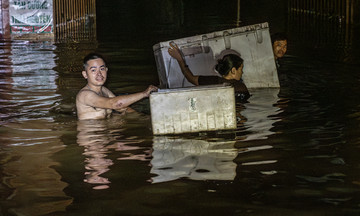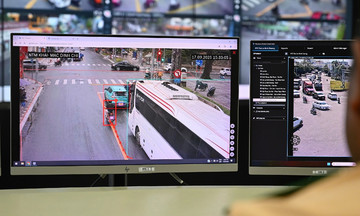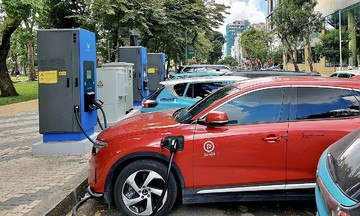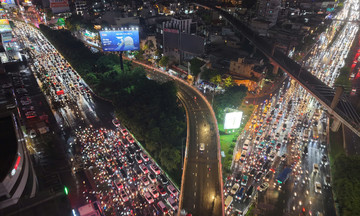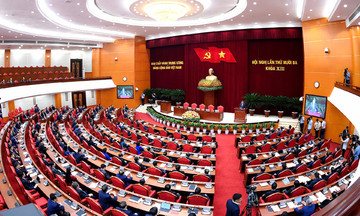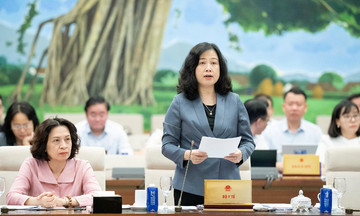At a hearing on policies to combat counterfeit food and medicine organized by the Culture and Social Affairs Committee on Tuesday morning, 21/8, Deputy Chairman of the Committee, Ta Van Ha, presented a box of colostrum milk for children, claiming it was a suspected counterfeit easily purchased on the market. "The product has sophisticated packaging, complete labeling, and anti-counterfeit stamps, but when the barcode is scanned, no information appears, and the distributor or manufacturer cannot be contacted," he said.
According to Ha, most consumers find it difficult to distinguish genuine products from counterfeits with the naked eye, while counterfeit food and medicine directly affect people's health and lives. He asked the Ministry of Industry and Trade to clarify which agency is responsible if this product is indeed counterfeit. He also pointed out that current coordination mechanisms are loose, inspection and supervision are lax, and penalties are insufficiently deterrent. "A box of counterfeit milk sells for 500,000-800,000 VND while the fine for producing counterfeit goods is only 100 million VND, and for trading counterfeit goods, it's 70 million VND," he stated.
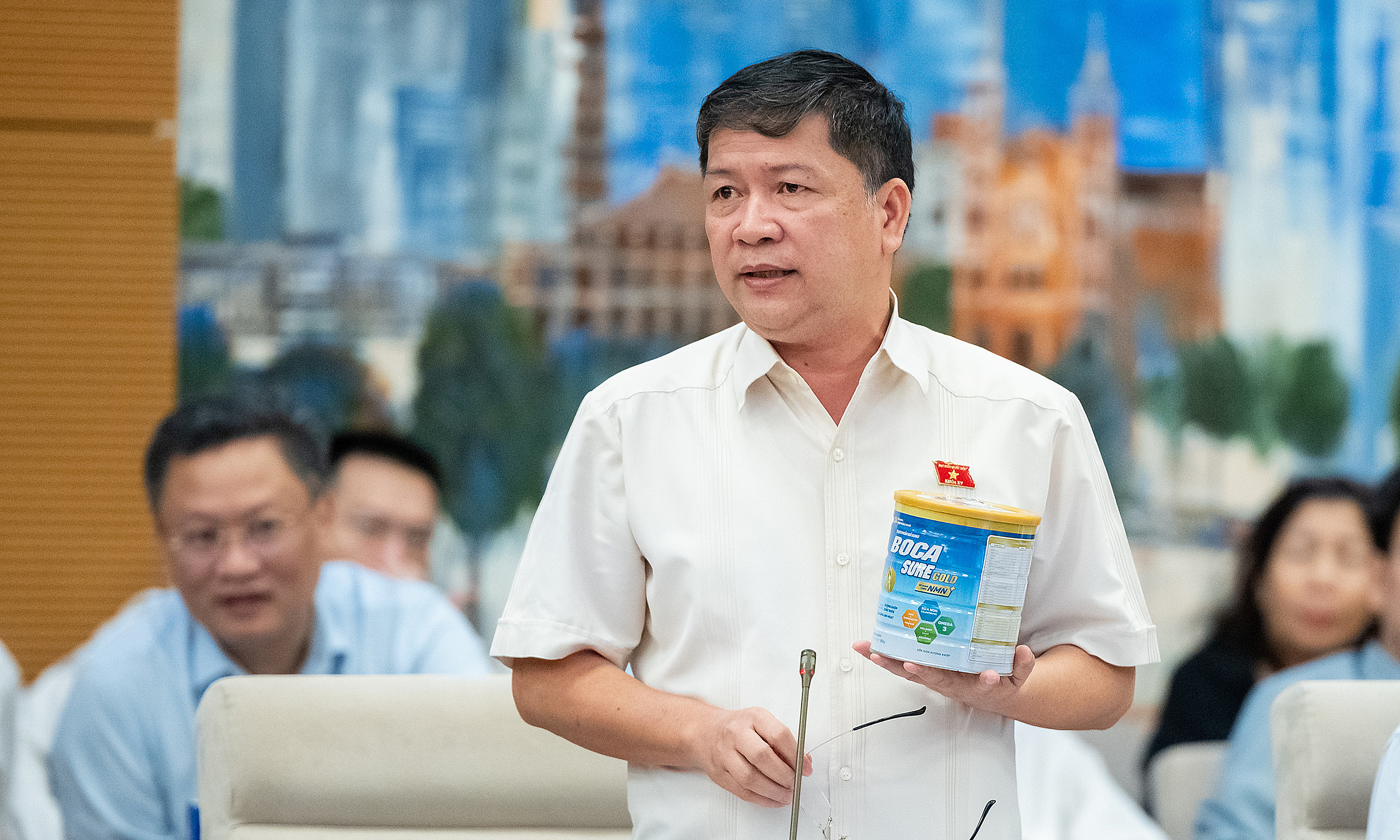 |
Mr. Ta Van Ha, Deputy Chairman of the Culture and Social Affairs Committee at the conference. Photo: Pham Thang |
Mr. Ta Van Ha, Deputy Chairman of the Culture and Social Affairs Committee at the conference. Photo: Pham Thang
Chairman of the Culture and Social Affairs Committee, Nguyen Dac Vinh, agreed that the current management regulations are ineffective and inadequate. He highlighted the fact that when people discover suspected counterfeit products, like the milk box with incorrect stamps and barcodes, they don't know whom to report to, which agency will handle it, or how it will be handled.
Minister of Health Dao Hong Lan acknowledged that the 2010 Food Safety Law and Decree 15/2018 are no longer suitable for the current situation, where counterfeit food is becoming increasingly sophisticated. The main reason is the lack of synchronization in the legal system, especially in controlling the quality of functional foods. Gaps include the lack of regulations to suspend the acceptance of registration dossiers in case of violations, mechanisms for revoking issued certificates, and specific regulations on the designation and self-declaration of testing agencies.
According to the Minister, there is a lack of a database system for food production management, and regulations on the rights and obligations of organizations and individuals who self-declare their products are not strict enough. "Every legal loophole can be exploited if businesses lack business ethics," she emphasized.
Regarding the "single point of contact" management model, the Minister said the Ministry of Health is the focal agency for policy advice, but implementation is still divided by product category, with the participation of the Ministry of Industry and Trade, the Ministry of Agriculture and Rural Development, and local authorities. Directive 17 of the Secretariat assigns the Ministry of Home Affairs to lead the consolidation, and the Ministry of Health will advise on mechanisms based on pilot experiences in Ho Chi Minh City, Da Nang, and Bac Ninh.
The current control work involves the Ministries of Health, Public Security, Industry and Trade, Culture, Sports and Tourism. The coordination mechanism will be more clearly defined during the revision of the Food Safety Law and Decree 15. The division of management authority for local governments will follow the general principle of assigning decisions to provincial People's Committees.
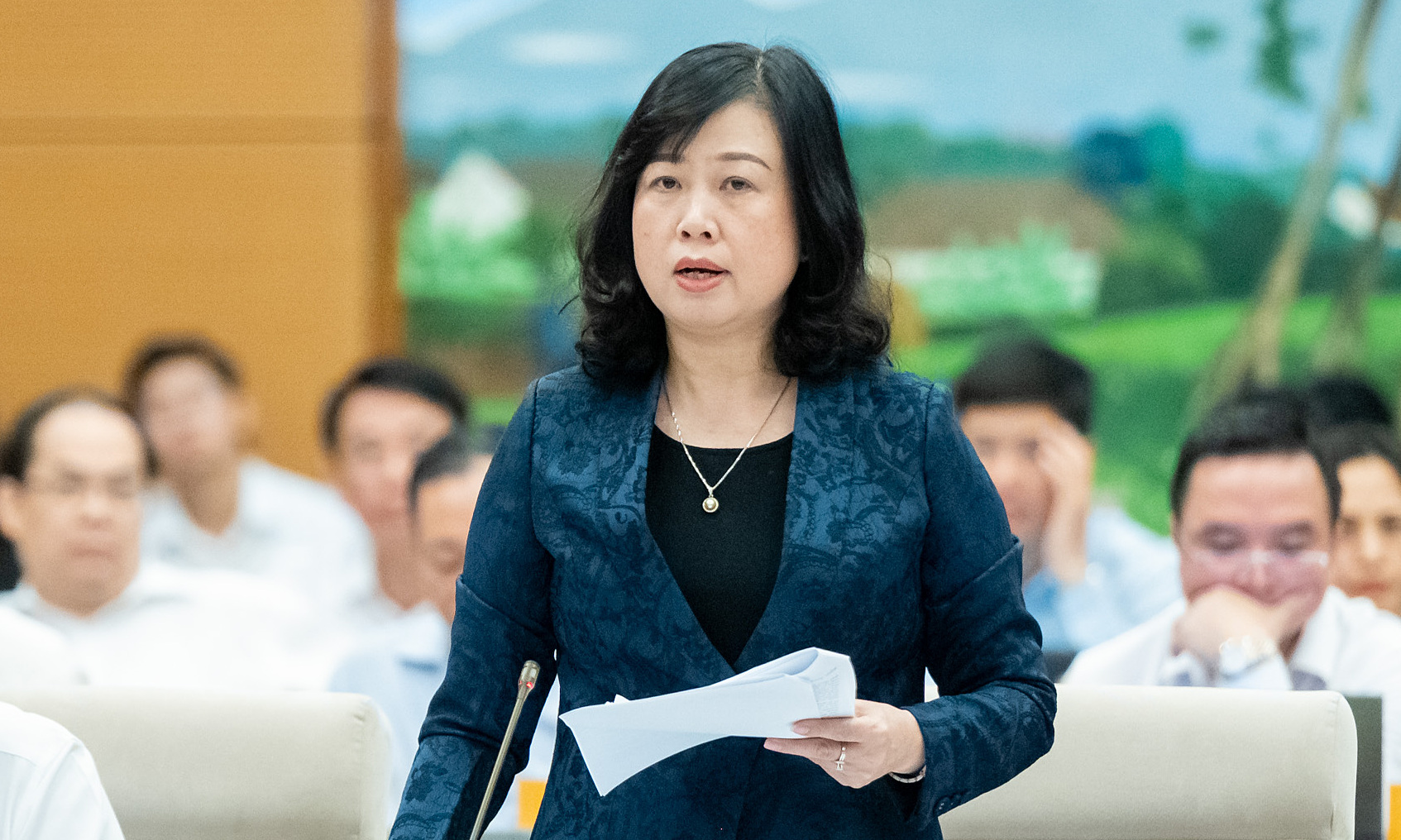 |
Minister of Health Dao Hong Lan. Photo: Pham Thang |
Minister of Health Dao Hong Lan. Photo: Pham Thang
The Minister warned about the situation of people buying medicine without consulting doctors, leading to overuse and antibiotic resistance. This is partly due to misleading communication from pharmaceutical companies. "The Ministry of Health is considering changing advertising methods, tightening regulations in Decree 15 and the Food Safety Law regarding content, form, especially the use of non-professionals," she said.
The Ministry of Health has summarized 15 years of implementing the Food Safety Law and is completing the dossier to submit to the Government, expected to be submitted to the National Assembly for amendment in 2026. Decree 15 will be amended soon to be submitted to the Government for issuance.
Nguyen Anh Tri, former Director of the National Institute of Hematology and Blood Transfusion, suggested redefining counterfeit goods. He cited Decree 98/2020, which defines products that do not meet 70% of quality standards as counterfeit, and argued that this is inadequate. "Counterfeit goods must be fake in nature. If the content is not met, it is of poor quality, not counterfeit," he explained. He proposed that the Ministry of Industry and Trade review and amend Decree 98, and the Ministry of Health research and add the concept of counterfeit food to the Food Safety Law.
Deputy Minister of Industry and Trade Nguyen Sinh Nhat Tan explained that Decree 98 already defines counterfeit goods to include counterfeit packaging, not just limited to quality. The 70% level is an estimated figure based on international practice. He said the Ministry will study and add to it so that the concept of counterfeit goods is clearer, suitable for each industry, item, and legal regulations.
He also agreed with the proposal that the Ministry of Health should add the definition of "counterfeit food" to the law. However, the nature of counterfeit goods relates to quality, safety, and intellectual property, so it is still necessary to consider which law to include this concept in, such as the E-commerce Law or the Food Safety Law.
Son Ha




